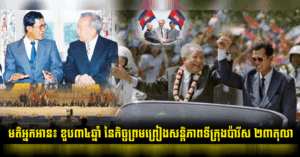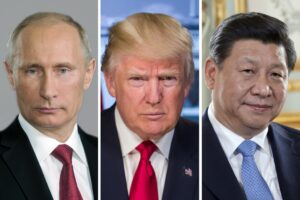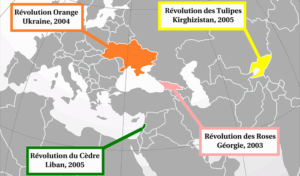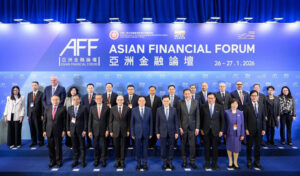Opinion: Letter to the Thai People
Khmer Times | I wish to address myself particularly to the people of Thailand, who must once again endure significant political instability, despite the clear message they sent during the last parliamentary elections. I do so because it seems implausible and unacceptable to me that, in the 21st century, two brotherly peoples, the Thais and the Khmers, should find nothing but war to resolve a border dispute.
For nearly five decades, as a political scientist, I have observed the political life of the Land of Smiles and that of the Land of the Khmer. Two peoples so close in many ways: the same Indian civilization sources, the same faith in the wisdom of the Lord Buddha, the same respect for the sacred person of the King. And, above all, the same historical heritage, because the Kingdom of Thailand and the Kingdom of Cambodia share the common heritage of being the heirs of the great Khmer empire that largely dominated the peninsula between India and China from the 9th to the 13th century.
But is this really what the vast majority of the people of the Land of Smiles want? What will those who shout nationalist slogans and call for war say to the bereaved families or those handicapped forever by the fighting?
There are those who claim that war can be avoided without resorting to the instruments that govern international law. According to them, all that would be needed is to convene the Joint Boundary Commission. This is a complete disregard for reality. Everyone knows that since the Memorandum of Understanding was adopted in 2000, a key document that jointly defines the benchmarks that should guide the work of this Commission, not a single meeting has produced concrete results in demarcating the border. Why should something that hasn’t worked for 25 years produce results today?
This is precisely why, since we must reject the military confrontation and the diplomatic confrontation has yielded nothing, we must rely on international justice. This is the path of reason; it is the path of peace; it is the path that two brotherly peoples who truly want to settle, once and for all, their border disputes must favor.
Thomas Fowler is a political analyst based in Phnom Penh. The views expressed are his own
History teaches us that empires are mortal because they are built through conquest, and conquered peoples always end up freeing themselves. This is true of all the empires that have succeeded one another on the planet. The same is true of the Khmer Empire and the peoples it subjugated.
Today, some, inflamed by nationalist passion, continue to claim some shreds of this defunct empire. Nationalism is a poison that defies reason and obliterates historical realities. Nationalism is an affirmation of the nation based on contempt for others. It is too often confused with patriotism, which is love of one’s country while respecting one’s neighbors. Nationalism is war, as the 20th century has shown. And not only in Europe. Didn’t the Second World War, in fact, begin in Asia, in 1931, when Imperial Japan invaded the Chinese province of Manchuria?
In 1945, the “never again” demand, requested in the aftermath of the worst conflict that peoples had ever suffered, sparked a surge, an expectation of a new world order where disputes would be settled by peaceful means. This new organization of international relations was codified by the United Nations Charter and embodied by two major institutions: the UN and the International Court of Justice.
In 1946, Thailand demonstrated the importance it attached to integrating into this new international order. To join this world organization that fostered peace, Thailand returned the three northern Cambodian provinces that it had annexed in 1941 through its alliance with Japan. Reason prevailed over nationalism. Relations between states had to be governed by commonly accepted rules. The force of law prevailed over the law of force. This was, in 1946, the conviction of the Thai people, guided and enlightened by the great wisdom of their young sovereign, King Bhumibol Adulyadej, who would soon after become Rama IX.
Since 1945, an entire legal architecture has been put in place in the international order. It must prevent a repeat of the immense tragedy that caused the deaths of tens of millions of innocent civilians between 1931 and 1945. For better or for worse, despite the division of the world into rival blocs for 44 years, conflicts have never spilled over into a regional dimension. If a major conflict could be avoided, it is because international law prevailed. And if we are experiencing great global disorder today, it is because two major powers violated this international law, in Iraq in 2003 and, more recently, in Ukraine. Warlike passions and the right to force were given free rein.
When one belongs to a country the size of Thailand, just as when one belongs to a country of a more modest size like Cambodia, and one disagrees on the demarcation of a border that, instead of dividing, should unite, how can one preserve peace, this most precious good of all? Abandon the international legal framework, the only one that allows for the peaceful settlement of such a dispute, as some superpowers allow themselves to do? Resort to arms, to warlike violence and to the hatred that gives it its strength ? This solution only tempts those who, guided by nationalism and hatred of others, feed on the blood and tears they shed.







